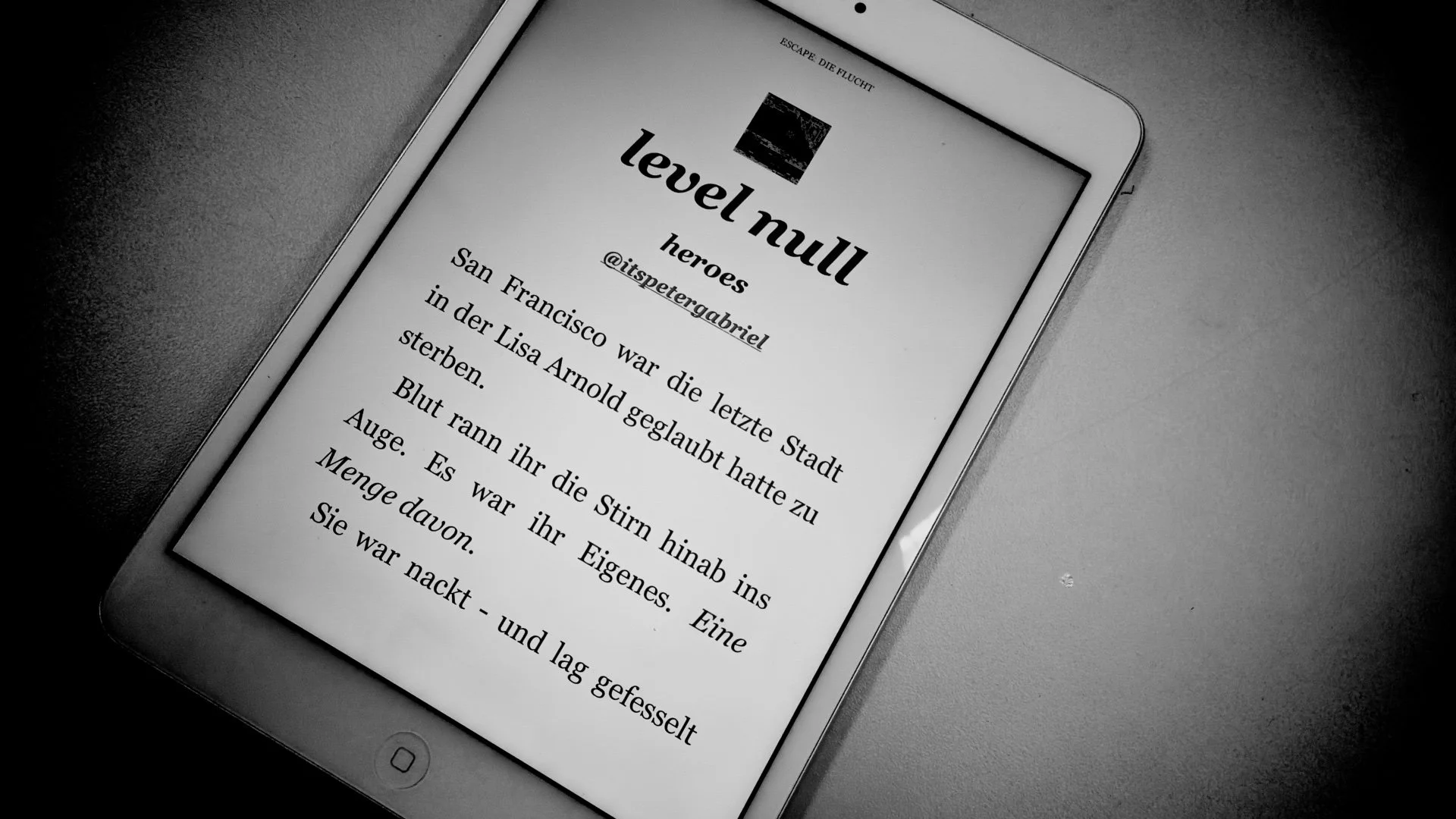The first sentence
The first sentence of a novel is important. Extremely important. I hadn't considered this in my first manuscripts. I just started and didn't give it much thought. At that time, I was still a student, so I only bought books on the bargain basement tables in front of bookstores. I didn't want to and couldn't invest more than one or two euros in a book. To get a quick overview of whether a book was interesting, I opened the first page and read the first sentence. Here is an example of a book that I randomly pulled from my bookshelf and whose first sentence did not blow me away:
AS HUGE AS IT WAS lonely, it looked like a great folded umbrella, with three cylinders as long as football fields clustered alongside the forward end of a mile-long plastic beam; not yet darkened with the dust that slowly darkens the universe, it gleamed in the light of the snowcapped planet below.
Terry Bisson - Voyage to the Red Planet (1990)
The sentence is not completely bad, (The translation is also not the stunner. I'm particularly bothered by the duplication of 'darkened') but it doesn't exactly invite you to hear more of this story either. You might disagree, but at the time I would have put this book back from the grab table. (So how did it end up on your bookshelf, Mr. Heinke? Well, it was recommended to me. And the whole book isn't bad at all, but it's not the burner either).
A MRS ROSA ORTIZ found the body. She was used to getting up with the sun, but this morning she was early, too early even for mass, so she took the long way, cutting through the park along the Alameda, where mist was still rising from the old riverbed.
Los Alamos - Joseph Kanon (1997)
Much better already. The first sentence, 'A Mrs. Rosa Ortiz found the body.' piques my curiosity and leads me to the next sentence. Stephen King was once asked how he writes his novels. "One word at a time," was his terse reply. But that's also true the other way around. We as readers also discover a story word by word, sentence by sentence. (Right. That's usually called 'reading' Mr. Heinke! And they are right. But you know what I mean.) We have to be seduced to read the story further. Putting a dead body in the first sentence is not bad. But there is another way:
I warn you that what you're starting to read is full of loose ends and unanswered questions. It will not be neatly tied up at the end, everything resolved and satisfactorily explained. Not by me it won't, anyway.
The Body Snatchers - Jack Finney (1954)
Finney is very clever in his approach here. Warning someone to read on makes a feeble mind like mine naturally read on. At the same time, the narrator remains humble and says that in any case he is not able to give an answer to everything. Sounds like a person with whom one could go for a beer. And you would listen to him. In a flash, you're on the hook.
Now we come to my absolute first favorite sentence. It doesn't come from Mr. Shakespeare or Mr. Goethe, but from a gentleman named Heinlein:
You see, I had this space suit. How it happened was this way:
"Dad," I said, "I want to go to the Moon."
"Certainly," he answered and looked back at his book. It was Jerome K. Jerome's Three Men in a Boat, which he must know by heart.
Have Spacesuit, Will Travel - Robert A. Heinlein (1958)
A boy comes into possession of a spacesuit. It all starts with a conversation the boy has with his father. The boy says that he wants to go to the moon. The (well-read) father replies only "Certainly".In just twenty-six words I am in the middle of the life of a boy and his father. I know something about his dreams and something about his relationship with his father. And the boy has a spacesuit! (Okay, I always wanted a spacesuit myself. But to become an astronaut, I was always too unathletic.) Heinlein uses a trick here called a 'cold open' in Hollywood movies.
Most of J.J. Abrams' films begin with a cold open. 'Mission Impossible 3' or 'Star Trek.' More of that in the next chapter.

